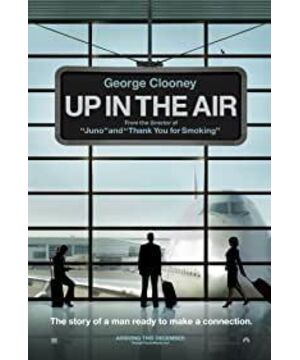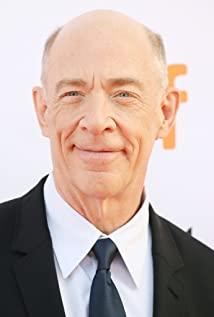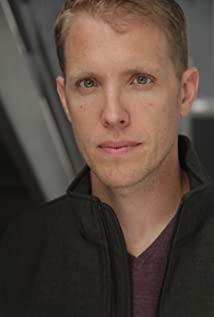When studying the capitalist metropolis of Paris in the 19th century, Benjamin focused on analyzing what the French called "Bohemians" [1] The image of wanderers, according to Benjamin’s interpretation, one of the main characteristics of urban wanderers is that "they are more or less in a kind of upheaval against society, and live more or less A precarious life". [2] Many freelancers such as writers and artists living in cities belong to the category of "wanderers". In fact, since the formation of the capitalist metropolis, the figure of wanderers has never disappeared. In the current post-capitalist metropolitan space and their movie texts, wanderers are still full of figures.
The so-called "Postmetropolis" (Postmetropolis), this concept comes from Soya, the leader of the Los Angeles school of "urban studies". According to Soya's point of view, human urban life has gone through about four historical stages [3]. As history enters the 21st century, developed capitalist metropolises begin to show many new features. The city has become more and more unstable. “The previous social relations, economic organization, and stable knowledge and expertise have been thrown into a problematic crisis and turmoil.” [4] In the face of the new situation, Soya frankly stated that “no There is a better or more specific term to describe this emerging metropolitan space, I chose to call it'post-metropolis'"[5]. Undoubtedly, Hollywood, a contemporary American film production base that is part of Greater Los Angeles, is a typical post-metropolis. In the video texts it produces, many protagonists are in this post-metropolitan landscape. The analyzed films such as "In the Cloud", "The Ninth Zone" and "Inception" are the typical representatives in my opinion.
It must be pointed out that the "American" film referred to in this article cannot be understood from the narrow concept of national film. This is because "the'America' in American movies has been vague and ambiguous from the beginning. This is not only because Hollywood has never regarded itself as a film industry confined to the United States, but has infiltrated the global entertainment empire. Even more because, no matter from the perspective of history or reality, the territory of'America' movies is drawn from the power of movies from all over the world." [6] For example, the "Ninth District" cited in this article, the main creators and location are from South Africa; the director and male lead of "Inception" are also British, and there are also Japanese actors who play important roles. Supporting roles, but the capital power to operate these films is still mainly from Hollywood, and they have been recognized by the mainstream American film industry. They are regarded as representative texts of contemporary American film works and are widely disseminated throughout the world. Therefore, this article is in A broad "pan-American" concept calls it "American" movies.
In addition, it must be clear that the post-metropolis has not yet shown a fundamental change compared with its predecessor, the metropolis formed by the third urban revolution. The metropolis symbol of modernity has been completely surpassed... Post-metropolis is to a large extent the excessive growth or expansion of those modern and modernist urban activities. It is a partial and incomplete variant, and always imprints the early urban space. Traces.” [7] In other words, there are still a lot of similarities between the post-metropolis and the urban forms of the previous stage. Therefore, when we investigate this topic, we can fully understand the period of the third urban revolution. There are many references to the urban research results of China.
Looking at the three films "In the Clouds", "The Ninth District" and "Dream Space", it is not difficult to find that the protagonists of the films are all typical post-metropolitan wanderers. Take "Inception" as an example. In this sci-fi story, except for the profession of "Dream Maker", the whole story is almost completely realistic-from the entire "Inception" scene In terms of selection, most of them belong to contemporary urban spaces, even in dreams. The protagonist of the film, Cobb, leads a team of dreammakers, searching for customers and performing tasks all over the world, often haunting various dangerous places, born to death, precarious. Cobb's work is very similar to that of private investigators or mercenaries. He and his team do not belong to any multinational companies or government public organizations, and they often act on the edge of law and morality. Obviously, this is a group of people who do not belong to any multinational companies or government organizations. Out-and-out contemporary post-metropolitan wanderer.
At first glance, the actor Ryan of "In the Clouds" looks a little different from Cobb. He seems to be a successful professional. In his professional field, Ryan has been recognized and successfully ranked among the economic status. The ranks of the middle class. However, Ryan’s working method is very intriguing-in the first half of the film, he has always been alone. When he takes over the next task, Ryan will take his suitcase and start his own journey and handle it alone. After all the work is done, come back and report to the boss. Judging from this way of working, Ryan undoubtedly has a strong post-metropolitan wanderer temperament. He never works in the company from 9 to 5, does not have a work partner, has no contact with his family for a long time, and spends a long time on the road. Far more than the time at home-Ryan doesn't even have a decent home.
It is worth mentioning that this way of working by Ryan is responding to the transformation of the post-metropolis capitalist mode of production-the so-called "post-Fordist" transformation [8]. In fact, the rise of post-Fordism is also one of the most important characteristics of the post-metropolis summarized by Soya. According to Soya’s summary, the post-metropolis, “crystal formed by a dense network of transaction chains” is often expressed It is a "post-Ford-style industrial metropolis" urban space" [9]. On the other hand, Ryan in "In the Cloud", his job is to be responsible for the layoffs entrusted by other company customers, and then habitually go through the long-distance air travel and complete the layoff procedures opposite to his customers. Personnel burden. This is a typical post-Fordist mode of production-judging from the film, the company that Ryan serves has been flourishing, and it seems to be self-evident that it reflects the increasing popularity of the post-Fordist mode of production (and coincides with the financial Current affairs background of the crisis). If it is said that Cobb chose to be a post-metropolitan wanderer, then Ryan is in the post-Fordist mode of production, which makes him appear to be a post-metropolitan wanderer even in his daily work. Basically the same life state. At the end of the film, Ryan let go of the hand holding the suitcase at the airport. This can be understood as Ryan has made the decision to leave, and it also means that Ryan has given up a stable job and changed his mind. For a more thorough post-metropolitan wanderer.
Cobb and Ryan also have one thing in common: they not only wander in one city, but also travel through different world metropolises-Cobb's figure appears in different places around the world, and Ryan's footprints are Different North American cities are connected in series, and a recurring shot in "In the Clouds" is a picture of the city taken from the cloud, and then the names of the different cities are superimposed. Obviously, this is also an important era characteristic of post-metropolitan wanderers. Most of the urban wanderers created during the third urban revolution only wandered in one or a few adjacent cities, while the wanderers of the post-metropolis spread their shadows in the post-metropolitan space that has been globalized. Because with the intensified process of globalization, post-metropolitan cities have begun to take on a look called "global city, world city". It can be said that each post-metropolis is a global city. The boundaries of cities are "overflowing", and the increasingly close ties between these cities have increasingly demonstrated the tension between them and the nation-state. [10] This point is more obvious in Inception: the sense of geographic space of the nation-state in the film is unprecedentedly watered down. Except for a few scenes such as snow-capped mountains and Japanese castles, Cobb even travels in his dreams. I don’t know which country’s post-metropolitan street it is located in, but the last big dream scene was simply arranged to take place on a long-distance flight across the ocean. Correspondingly, long-distance flights have also become the daily living space of Ryan, the protagonist of "In the Clouds"-this undoubtedly indicates that long-distance flights have become one of the iconic daily living spaces for post-metropolitan wanderers.
Similar to "Inception", except for the "9th District" that contains aliens, the urban space and characterization in "9th District" are almost entirely realistic. The protagonist of the film, Vikus, Experienced a painful identity change from ordinary urban residents to wanderers. Vikus was a government worker at the beginning, responsible for the management of the slum-like alien inhabited area, but after being infected with the alien virus, Vikus began to show signs of aliens. Because of the changes, Vykus had to flee in a panic, away from his family and friends. At this time, Vykus had become a wanderer in a human city hiding in Tibet. After fleeing, Vikus had a closer contact with the aliens. He gradually developed sympathy for the aliens’ situation. In the end, Vikus sacrificed his life to protect the aliens’ father and son. At this time, he was more than just A Bohemian who is "in a kind of upheaval against society", but completely stands on the opposite side of the human city, becoming a post-extreme metropolitan wanderer who violently resists the city-a guerrilla.
The wanderer also reflects the unique psychological mechanism of urbanites. Benjamin once keenly described the unique experience that created this psychological mechanism from the bustling crowds on the streets of Paris: people are surrounded by crowds, and everyone does not know each other, "walking through them will bring a series of panics and collisions to individuals. . At dangerous intersections, a series of nervous tension will pass through the body as quickly as an electric shock." [11] This is what Benjamin called the "chockerfahrung" (chockerfahrung) of urbanites. The tremor experience created the psychological mechanism of capitalist urbanites. In the words of the classic Marxist writer, “This kind of street crowding already contains some ugly anti-humanity...Social war, everyone opposes everything. The human war has been publicly announced here." [12]
Obviously, the tremor experience has continued to and strengthened in the post-metropolis of the era of monopoly capitalism. Inception is almost a visual interpretation of this situation: when Cobb took the female apprentice into the dreamland At times, they have to face the crowds on the street at all times, these groups of people come and go in a hurry, ignoring each other's existence. According to the explanation of the film, these people are the "defenders" from the subconscious level of the dreamer. These defenders undoubtedly have deep-rooted hostility, threatening the safety of the wanderer (dream maker)-no doubt, at this time there is an ongoing battle. Street war without gunpowder.
The tremor experience also means that the wanderer has a special urban personality. This "psychological basis of the urban personality is contained in intensely stimulating tension, which results from the rapid and continuous changes of internal and external stimuli" [13], Once this stimulus continues for a long time, it is inevitable that urbanites will become world-weary (sophisticated), "because it arouses the nerves and stays in the strongest response for a long time, so that in the end there is no response to anything." [14] In the post-metropolitan era, urbanites are tired of the world and are in a more intense and rapid stimulus caused by the overall disordered urban landscape, so that they show symptoms called "neurasthenia", we can say, " Neurasthenia is a psychological symptom of life in the post-metropolis." [15]
Ryan, the protagonist of "In the Clouds", is an obvious neurasthenia. His inspirational speeches can only instigate others but can't convince himself. He has almost no interest in anyone and things around him. It cares whether he can accumulate enough long-distance flight journeys and become a platinum card customer of airlines. It was not until after a long conversation with her brother-in-law that Ryan was determined to propose to the woman she liked, and was helpless to make a fortune. Ryan finally failed to establish her own home. It seems that Ryan's neurasthenia will continue for some time. The protagonist of "Inception", Cobb, is even more entangled by the guilt of thinking about his wife. The so-called spinning top dream actually shows that Cobb's rejection of reality ---weariness of the world under the feeling of thinking about his wife.
The protagonist Vikus in "The Ninth District" has been fighting to defend himself and the aliens. However, many pseudo-news interviews with urban residents are deliberately inserted in the film. Whether they know Vikus or not, the interviewees are all Talking numbly about his views on Vykus. Undoubtedly, if Vykus is a guerrilla fighter who bravely rebelled against the city, those interviewees are out-and-out nervous breakdowns-they neither love nor hate Vykus, they are spectators. Appreciate a live drama concocted by the media, and then quickly forget him and find the next exciting point.
Notes:
[1] There are different translations of this concept in China, or translations of "langdang vagrant", "vagrant" and so on. See the main three different Chinese translations: "Lyric Poets in the Era of Developed Capitalism", translated by Zhang Xudong and Wei Wensheng, Sanlian Bookstore, 1989; "Lyric Poets in the Era of Developed Capitalism", translated by Wang Caiyong, Jiangsu People's Publishing House, 2005 Years; "Paris, the Capital of the 19th Century", translated by Liu Beicheng, Shanghai People's Publishing House, 2006.
[2] (German) Benjamin: "The Lyric Poet in the Era of Developed Capitalism", translated by Wang Caiyong, Jiangsu People's Publishing House, 2005,
p.14 [3] Saoya believes that the first urban revolution occurred at about 10,000 Years ago; the second urban revolution occurred about five thousand years ago; the third urban revolution occurred during the industrial revolution; since the urban crisis occurred in the 1960s, it has been regarded as the fourth stage of urban development. See (United States) Saoya: "Post Metropolis", translated by Li Jun, Shanghai Education Press, 2006.
[4] Same as [3], p. 200.
[5] Same as [3], p.145.
[6] Sun Shaoyi: "Film Dimension-Image Space and Cultural Globalism", p. 96, Fudan University Press, 2010.
[7] Same as [3], pages 191~192.
[8] "Post-Fordism means a historic transformation, in which the new economic market and economic and cultural principles have been opened up by information technology methods based on new types of consumers... The post-Fordist era is usually associated with Related to smaller and more flexible production units, which can separately meet the needs of a larger range and various types of specific consumers... The central process identified by this concept includes: the decline of large or heavy industries, and the emerging The emergence of small, more flexible, decentralized labor organization networks and the global relationship between production and consumption... One of the core characteristics of post-Fordism is considered to be the rise of multiple politics about lifestyles and different consumption practices "Tao Dongfeng: "Fordism and Post-Fordism", in "Foreign Social Sciences", No. 1, 1998.
[9] Same as [3], page 205.
[10] Same as [6], see pages 18-19.
[11] Same as [2], page 135.
[12] Engels: "The Situation of the British Working Class", "The Complete Works of Marx and Engels • Volume Two", People's Publishing House, 1957, p.304.
[13] (Germany) Ziort Simmel: "The Philosophy of Fashion", translated by Fei Yong et al., p. 186, Culture and Art Publishing House, 2001.
[14] Ibid., p.190.
[15] See the same [3], page 196
(published in "Contemporary Film" in December 2010)
View more about Up in the Air reviews











